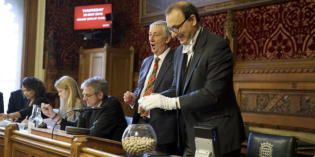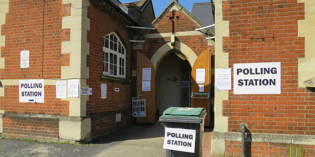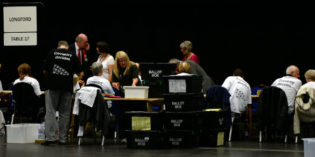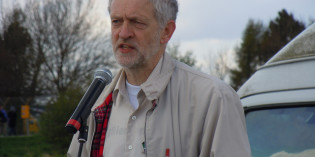Tag: Chris Game

How Private Members’ legislation improved local government social value
Chris Game assesses the efficacy of one of Parliament’s most antiquated procedures, the Private Members’ Bill, and finds that, though they have proliferated to little effect, in some notable cases, including local government procurement, they have instigated considerable reform.

Our student generation has been disenfranchised
The latest generation of university undergraduates has been excluded from participating in an issue that will shape their future, leaving the EU. Chris Game details how this came about, and how approaches to youth participation now divide the parties and the nations of the UK.

England’s local elections 2019: Part 2 – Rainbow and other coalitions
In the second of two articles reporting the outcomes of May’s local elections, Chris Game looks in detail at how a high number of multi-party ‘Rainbow’ coalitions have been agreed, and highlights how, behind certain patterns of participation, there are numerous varieties of governing pacts – which, perhaps, Westminster politicians could learn from.

England’s local elections 2019: council outcomes from ‘no overall control’ results
With the two main parties losing hundreds of council seats, and the Lib Dems, Greens and Independents gaining across England in May’s local elections, the number of councils where no single party had a majority increased in 2019. In the first of two articles, Chris Game details how this has shaped governing outcomes for English councils – and demonstrates why reporting political coalitions in local government matters.

Local elections 2019: gone missing – 500 councillors
Local elections are taking place across much of England today, 2 May. However, as Chris Game, explains, the number of local councillors has been reduced in many places, in a reorganisation process that lacks democratic accountability.

England’s local elections: how councillor numbers are being reduced by stealth
Local elections are being held across England on 3 May, but finding out where and for which seats is not always straightforward. Of more concern, writes Chris Game, is that the number of local councillors is gradually being reduced, in a process that lacks transparency, proper scrutiny and a clear, democratic rationale.

Far from destroying the Labour Party, Jeremy Corbyn could save it from electoral wipeout
Jeremy Corbyn, originally a rank outsider, is now the Leader of the UK Labour Party. He did so by gaining an enormous democratic mandate with over half a million voters registering a preference for him. His critics argue that his blend of pacifist leftism is unelectable, but Chris Game argues that to the contrary, if […]

Like our students, UK voters should have the option to vote for ‘Re-open Nominations’
In the UK, there is currently no formal provision for voters to make a positive abstention. Chris Game argues that this is a mistake, and that a ‘Re-open nominations’ option should be added to ballot papers, as part of a range of reforms aimed at increasing engagement. Wednesday April 15 was #DeDay – Democracy Day, […]




 Democratic Audit's core funding is provided by the Joseph Rowntree Charitable Trust. Additional funding is provided by the London School of Economics.
Democratic Audit's core funding is provided by the Joseph Rowntree Charitable Trust. Additional funding is provided by the London School of Economics.